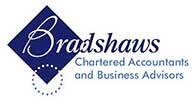New year brings new Brexit rules into force
To all intents and purposes, the UK left the EU on 31 December 2020. However, some changes to rules were delayed to ease the transition. From 1 January 2022 there are additional customs rules to be aware of for businesses trading with the bloc. What's changed?

Following the UK’s exit from the EU, there have been wholesale changes to the way imports and exports of goods are handled. The agreement struck in December 2020 means that there are no tariffs applied, but import tax has been applicable since January 2021. Certain processes, mainly regarding paperwork, were not initially required in order to allow affected businesses time to get used to the new relationship with their customers. These have now taken effect:
- full customs import declarations are needed for all goods at the time a business or the courier/freight forwarder brings them into Great Britain
- customs controls at all ports and other border locations
- the possible need for a suppliers’ declaration proving the origin of your goods (either UK or EU) if using the zero tariffs agreed in the UK’s trade deal with the EU
- commodity codes, which are used to classify goods for customs declarations, are changing.
Further information is available from HMRC.
Related Topics
-
Who can't yet sign up for MTD IT?
Making Tax Digital for Income Tax (MTD IT) becomes mandatory from April 2026 for sole traders and landlords with qualifying income over £50,000. However, HMRC’s current guidance makes clear that not everyone can sign up yet. If you are preparing early, are you actually eligible?
-
MONTHLY FOCUS - PROFIT EXTRACTION PLANNING AHEAD OF 5 APRIL 2026
The end of the 2025/26 tax year is fast approaching. In this Monthly Focus we look at ways to get money out of your company tax efficiently, and consider whether limited is still the way to go for your business.
-
HMRC updates advisory fuel rates from 1 March 2026
HMRC has published the latest advisory fuel and electric rates (AFRs) for company cars, effective from 1 March 2026. Several rates have changed since the previous quarter. What should employers be aware of?

 This website uses both its own and third-party cookies to analyze our services and navigation on our website in order to improve its contents (analytical purposes: measure visits and sources of web traffic). The legal basis is the consent of the user, except in the case of basic cookies, which are essential to navigate this website.
This website uses both its own and third-party cookies to analyze our services and navigation on our website in order to improve its contents (analytical purposes: measure visits and sources of web traffic). The legal basis is the consent of the user, except in the case of basic cookies, which are essential to navigate this website.